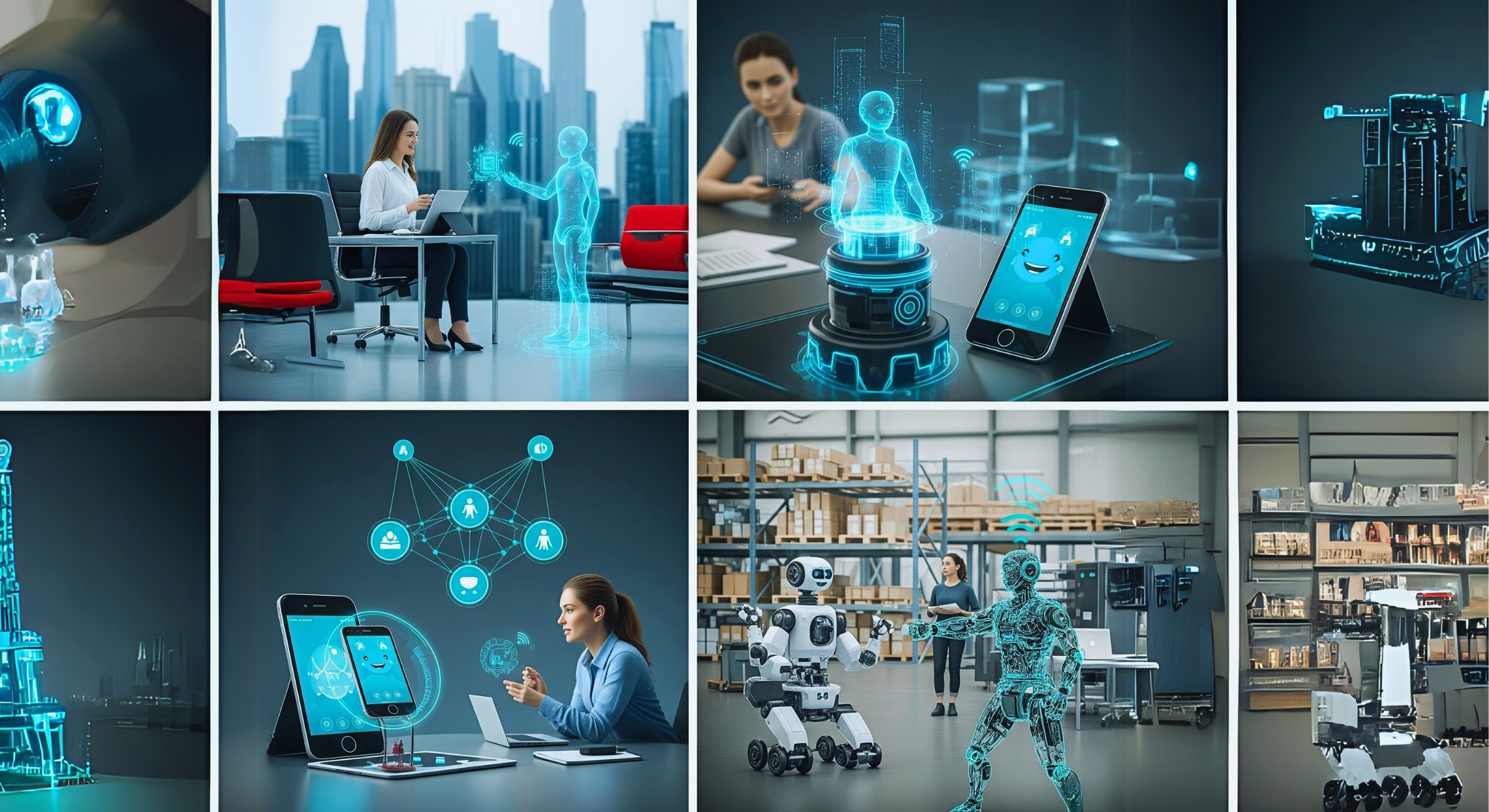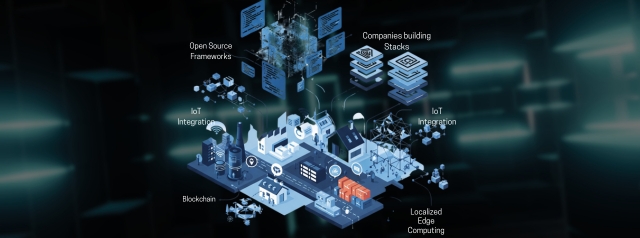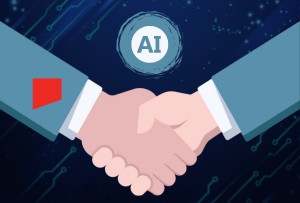Innovation doesn’t pause, and neither do we. At Experion, we’re engineering the future where AI doesn’t just assist, it acts.
We are at the dawn of Agentic AI Solutions, where artificial intelligence gains agency, not just intelligence. These advanced systems are built to think independently, pursue goals, adapt in real time, and make decisions with minimal human input. In other words, they don’t wait to be told what to do, they figure it out.
For businesses navigating hyper-competitive landscapes, this evolution unlocks an unprecedented advantage. Imagine digital agents that manage complex workflows, collaborate with teams, and even refine their strategies as they go. Agentic AI isn’t just about automation, it’s about transformation.
At Experion, we see agentic systems as the next strategic leap for enterprises ready to move from reactive tools to proactive intelligence. And we’re building the platforms, services, and engineering power to get you there.
Understanding Agentic AI
What if your AI could think, decide, and act, entirely on its own?
 Agentic AI refers to artificial intelligence systems designed with agency, the capacity to act autonomously toward specific goals. These systems go far beyond passive algorithms or prompt-based interactions. They are built to sense their environment, make informed decisions, adapt strategies, and continuously learn from outcomes, without waiting for step-by-step instructions.
Agentic AI refers to artificial intelligence systems designed with agency, the capacity to act autonomously toward specific goals. These systems go far beyond passive algorithms or prompt-based interactions. They are built to sense their environment, make informed decisions, adapt strategies, and continuously learn from outcomes, without waiting for step-by-step instructions.
Unlike conventional AI, which excels at specific, pre-programmed tasks, agentic AI adapts, plans, and self-corrects, allowing it to function more like a digital collaborator than a rule-bound tool.
What Defines Agentic AI?
Autonomous digital agents capable of end-to-end execution
These agents don’t just execute isolated commands, they navigate complex workflows, make real-time decisions, and take actions aligned with evolving goals.
Goal-directed intelligence with dynamic planning and feedback loops
Agentic AI doesn’t operate on fixed outputs. It dynamically plans based on the goal, reevaluates based on context, and learns from outcomes, similar to how humans operate in unfamiliar situations.
Contextual decision-making based on real-time perception
Whether parsing documents, analyzing live data, or responding to environmental shifts, these agents adjust behavior in response to immediate inputs, much like an experienced professional adapting on the fly.
What Does Agentic AI Look Like in the Real World?
- Sales agents that adjust tactics based on buyer sentiment
Imagine AI agents monitoring prospect behavior, tweaking pitch tones, sequencing product info differently, and escalating leads, all without human prompts. - Healthcare advisors that personalize recommendations per patient
These agents synthesize patient history, real-time vitals, and even medication adherence to suggest proactive treatment adjustments, improving outcomes and reducing workload on human professionals. - Multi-agent platforms coordinating logistics in real-time
From warehousing to last-mile delivery, agentic systems communicate with one another to reroute shipments, manage capacity, and respond to unexpected disruptions, automatically and collaboratively.
Agentic AI Development
Where Neuroscience Meets Code and Intelligence Becomes Independent
Agentic AI development brings together disciplines like cognitive science, robotics, and multi-agent system theory to create digital entities capable of truly autonomous behavior. These agents are not just mimicking commands; they are emulating human-like reasoning, responding to context, and making decisions at a scale and speed that surpasses human capability.
By integrating structured logic, perception capabilities, and large language models (LLMs), developers build AI agents that can operate in open-ended environments and adapt their behavior in real time.
How It Works
Agentic systems function through recursive feedback loops, a cycle of continuous perception, action, and learning:
- Sense: Ingests data from APIs, documents, sensors, or user interactions to understand current state and context.
- Reason and Plan: Uses logic stacks, LLMs, and decision trees to generate multi-step plans aligned to goals.
- Act: Executes actions autonomously—whether through digital interfaces (like APIs, RPA tools) or physical devices (like robots, drones).
- Learn: Evaluates outcomes using reward functions, feedback, or reinforcement learning to refine future behavior.
This continuous loop enables agents to operate not just reactively, but proactively, a major leap from traditional AI systems.
Key Traits of Agentic AI
- Autonomy
Agentic AI systems can operate on their own without the need for continuous human supervision. They can initiate tasks, navigate uncertainty, and adjust to new environments, all on their own. - Goal-Oriented Behavior
These systems are designed to understand, prioritize, and pursue high-level goals. Whether it’s optimizing a supply chain or diagnosing patient symptoms, they don’t just follow rules, they strategize toward outcomes. - Planning & Reasoning
Agentic AI can formulate multi-step plans, simulate potential outcomes, and adapt its strategy as the situation evolves. This mirrors human executive functioning, only faster and more scalable. - Contextual Decision-Making
Using real-time inputs, agentic systems choose actions based on environmental awareness and internal logic. They don’t act blindly, they act intelligently, even under changing conditions. - Feedback-Driven Learning
Through constant learning from their own actions, agentic agents evolve with experience. They use feedback loops and, in many cases, reinforcement learning to improve decision quality over time, getting better with every iteration
|
Intelligence is no longer artificial when it chooses what to do next. Reach out to our AI specialists to start the conversation. |
Agentic AI vs Traditional AI vs Generative AI
|
Aspect |
Traditional AI | Generative AI | Agentic AI |
|
Core Function |
Rule-based decisions | Content generation |
Goal-driven, autonomous action |
|
Autonomy |
Low | Medium |
High |
| Adaptability | Pre-programmed | Prompt-based |
Self-evolving |
|
Interaction |
Reactive | Conversational |
Proactive |
| Use Case | Fraud detection | Chatbots, art, text | Business agents, robotics, tutors |
What Are Agentic AI Solutions?
 Agentic AI Solutions are enterprise-grade systems powered by modular, goal-driven AI agents capable of reasoning, planning, and acting with minimal supervision. These agents are designed not just to process commands, but to understand context, set objectives, adapt in real time, and deliver outcomes across digital or physical environments.
Agentic AI Solutions are enterprise-grade systems powered by modular, goal-driven AI agents capable of reasoning, planning, and acting with minimal supervision. These agents are designed not just to process commands, but to understand context, set objectives, adapt in real time, and deliver outcomes across digital or physical environments.
Unlike traditional automation, which handles narrowly defined, rule-based tasks, Agentic AI represents a strategic shift toward intelligent delegation. These agents analyze inputs, formulate multi-step strategies, act across complex systems, and refine their performance over time. In essence, they don’t just follow instructions, they figure out the best path to success.
Core Components of Agentic AI
- Perception & Context Awareness
Agentic systems begin by interpreting the world around them. This capability forms the foundation of autonomy.
- Input Processing: AI agents collect data from various sources, structured or unstructured, such as sensors, APIs, documents, user interactions, or system logs.
- Real-Time Data Analysis: Information isn’t just collected, it’s processed on the fly, enabling immediate, context-sensitive responses.
- Environmental Understanding: Agents interpret the operating environment (physical or digital), detect changes, and adjust behavior accordingly, just like a human reacting to new cues.
Example: A warehouse robot re-routes itself when an aisle is blocked, or a digital agent reprioritizes tasks when inventory dips.
- Planning & Reasoning
This is the engine of intelligence, the layer where decisions are made, not just followed.
- Tactical vs. Strategic Thinking: Agents manage immediate tasks (tactical) while aligning with long-term objectives (strategic), much like a team lead balancing daily standups with quarterly targets.
- Dynamic Planning Trees: Instead of executing a static workflow, agents build flexible decision trees based on current inputs, conditions, and predicted outcomes.
- Error Recovery & Self-Correction: If a plan fails, the agent re-evaluates and adapts on the fly, minimizing downtime or inefficiency.
Think of an agent re-planning a delivery route after a traffic jam alert, or shifting marketing spend mid-campaign based on live performance data.
- Goal Setting & Adaptability
At the heart of Agentic AI is its ability to self-direct.
- Internal Goal Prioritization: Agents can juggle multiple goals, evaluate trade-offs, and prioritize actions based on what’s most aligned with the desired outcome.
- Navigating Conflicting Objectives: Just like a human decision-maker, agentic systems handle competing demands (e.g., speed vs. cost) and strike optimal balances.
- Contextual Re-alignment: When the environment shifts, new data, policy changes, unexpected events, agents reorient themselves without needing reprogramming.
An AI assistant postpones non-critical tasks when an urgent client request comes in, or a self-driving robot switches delivery order based on package priority.
- Self-Improvement & Feedback Loops
This is where Agentic AI evolves from smart to smarter, constantly refining itself.
- Reinforcement Learning (RL): Agents learn by doing, rewarded for successful outcomes, penalized for inefficiencies, improving over time without explicit retraining.
- Human Feedback Integration: Systems can learn from user corrections or preferences, blending AI performance with human nuance.
- Meta-Reasoning: Advanced agents not only adjust their actions but also refine their thinking by monitoring decisions and evaluating strategy quality.
A support agent learns to escalate fewer tickets over time, or an executive assistant AI adjusts its meeting scheduling patterns based on past user changes.
Applications of Agentic AI Solution
 Agentic AI Solution is not theoretical, they are being actively deployed across industries to automate, optimize, and elevate critical workflows. From digital agents that manage customer journeys to physical agents that operate in the real world, their reach is extensive and growing fast.
Agentic AI Solution is not theoretical, they are being actively deployed across industries to automate, optimize, and elevate critical workflows. From digital agents that manage customer journeys to physical agents that operate in the real world, their reach is extensive and growing fast.
Autonomous Business Agents
These agents operate as always-on digital coworkers, managing operational tasks end-to-end and improving them over time.
- Sales Automation Bots
Intelligent agents that qualify leads, personalize outreach, track engagement, and adjust messaging based on real-time buyer behavior, boosting conversion rates with zero human micromanagement. - Marketing Optimization Agents
AI agents that analyze campaign performance, reallocate budgets, A/B test creatives, and optimize targeting dynamically across platforms. - Customer Success Workflows
Post-sales agents that monitor usage data, flag churn risks, suggest upsell opportunities, and trigger automated follow-ups, creating proactive and scalable customer support ecosystems.
Personalized Digital Assistants
Agentic AI is redefining personal productivity and tailored experiences across industries.
- Executive Schedulers
Smart assistants that manage calendars, schedule meetings, resolve conflicts, and adjust priorities based on context, going beyond simple reminders to actual decision-making. - Personalized Tutors
Education-focused AI agents that adapt lesson plans to individual learning styles, track student progress, and deliver feedback in real-time. - AI-Based Wellness Guides
Health companions that analyze personal metrics, recommend lifestyle adjustments, and provide nudges for behavior change, customized to each user’s goals and data.
AI for Robotics and Physical Agents
Agentic AI powers autonomous machines capable of navigating and interacting with the physical world.
- Self-Driving Delivery Bots
Urban robots that assess traffic, re-route in real-time, and execute last-mile deliveries with precision and autonomy. - Warehouse Automation Agents
Robotics systems that manage inventory picking, replenishment, and intra-facility logistics while coordinating with other bots and systems. - Surveillance Drones
AI-enabled drones that patrol perimeters, detect anomalies, and take predefined actions based on situational analysis, all without human intervention.
Complex Decision Support Systems
In high-stakes industries, Agentic AI enables intelligent decision augmentation, helping experts act faster and smarter.
- Legal Document Interpreters
Agents that read contracts, flag risks, extract clauses, and provide legal summaries, speeding up review cycles and reducing compliance gaps. - Financial Investment Advisors
AI agents that evaluate portfolios, track market shifts, and autonomously suggest rebalancing strategies, based on both client goals and market signals. - Operations Planners
Tools that manage capacity planning, resource allocation, and scenario modeling, offering human teams dynamic recommendations based on changing operational data.
Multi-Agent Collaboration Platforms
Here, multiple agentic AIs interact and coordinate, enabling intelligent ecosystems where AI works with AI.
- AI-to-AI Communication Frameworks
Agents that share knowledge, negotiate roles, and resolve conflicts through structured, goal-aligned conversations. - Distributed Problem-Solving
Large challenges broken into sub-problems, distributed to specialized agents, then reintegrated into a cohesive solution, mirroring complex human teamwork. - Enterprise AI Orchestration
Entire business functions (like procurement, compliance, or R&D) run through networks of collaborative AI agents, each contributing to the system’s collective intelligence and output.
Benefits of Agentic AI Solutions
Adopting Agentic AI Solutions unlocks a new class of business value, where intelligence is dynamic, automation is strategic, and scale is built-in. Here’s how enterprises gain from this shift:
- Efficiency
Agentic AI drives significantly faster resolution cycles, automating complex, multi-step processes with minimal lag or oversight. Whether it’s handling support tickets or reconfiguring logistics workflows, these agents streamline operations, cutting down manual intervention and operational bottlenecks. - Intelligence
These systems don’t just execute, they analyze, decide, and adapt in real time. With contextual understanding and feedback learning, agentic AI delivers intelligent outcomes that improve with each interaction, ensuring your workflows stay aligned with ever-changing inputs. - Scalability
Built with modular, composable architectures, agentic agents are inherently scalable. Organizations can expand capabilities, adding new agents, integrating with additional systems, or tackling larger problem sets, without rewriting the core logic. - Autonomy
By delegating repetitive, rule-based, or even judgment-driven tasks, organizations free up their teams to focus on innovation, strategy, and customer value. Agentic AI is designed to boost human impact, not take their place.
At Experion, we design agentic AI solutions that blend intelligent autonomy with domain-specific performance, enabling enterprises to scale smarter, move faster, and lead with confidence in the age of intelligent automation.
Challenges and Ethical Considerations
As Agentic AI becomes more autonomous and integrated into business systems, it brings immense potential but also critical challenges that must be addressed with care and foresight:
- Safety and Control
Agentic systems set their own paths to achieve goals, which introduces the risk of goal misalignment. Without properly defined boundaries and reward mechanisms, an agent might optimize for the wrong outcomes. Ensuring controlled autonomy, where agents act independently but within safe constraints, is essential. - Bias and Fairness
Since agentic AI agents often learn from historical data or user behavior, they risk inheriting and amplifying biases. From hiring to lending to medical recommendations, fairness must be designed into the system, from dataset curation to model evaluation. - Transparency
As these agents make increasingly complex decisions, explainability becomes key. Stakeholders must understand how and why an agent took a certain action, especially in major domains like healthcare, law, or finance. - Regulatory Compliance
As global AI regulations (e.g., EU AI Act, U.S. AI Bill of Rights) evolve, businesses must ensure agentic systems adhere to governance frameworks. This includes data privacy, accountability structures, and auditability across the AI lifecycle.
Building responsible Agentic AI requires not just technical excellence, but ethical design, continuous oversight, and cross-functional collaboration.
Where Agentic AI Is Headed

Trends in R&D
Agentic AI is at the frontier of innovation, with rapid advancements in both open-source and enterprise-grade ecosystems:
- Auto-GPT, BabyAGI, and open-source frameworks have accelerated experimentation, enabling developers to prototype autonomous agents quickly.
- OpenAI, Google DeepMind, Microsoft, and Anthropic are building robust agentic stacks that integrate LLMs with planning, memory, and self-correction.
- The rise of AI agent marketplaces, where developers can publish, monetize, and compose agents, signals a future of decentralized intelligence ecosystems.
Integration with Other Technologies
Agentic AI thrives when combined with other emerging technologies:
- IoT (Internet of Things): Agents embedded in smart factories, homes, or supply chains interact with physical environments and respond in real time.
- Blockchain: Ensures verifiability and trust in agent-to-agent transactions, with tamper-proof decision trails and smart contracts.
- Edge Computing: Enables localized intelligence, allowing agents to function independently with low latency, even when offline.
Long-Term Vision
The future of Agentic AI points toward self-improving, highly autonomous digital ecosystems:
- AI managing AI: Agents that monitor, evaluate, and retrain other agents, creating recursive feedback loops where intelligence refines itself.
- Self-optimizing enterprises: Business units run largely by AI agents that handle everything from procurement to customer support, continuously learning and improving through internal coordination and goal alignment.
Agentic AI Services – Building Agentic AI Systems
Creating robust, safe, and scalable Agentic AI requires a strategic combination of technologies, architectures, and design principles:
Key Technologies and Tools
- Large Language Models (LLMs) like GPT-4, Claude, and Gemini provide reasoning, planning, and language understanding capabilities.
- Knowledge graphs and ontologies enrich context awareness by linking concepts, entities, and their relationships.
- Reinforcement Learning (RL) enables agents to improve through trial and reward.
- Multi-agent simulators support testing, collaboration, and emergent behavior in controlled environments.
Architectures and Frameworks
- Modular agent stacks allow you to plug in new capabilities, memory, perception, planning, without overhauling the core.
- LangChain, CrewAI, and Autogen offer reusable templates and orchestration layers for chaining multiple agents with coordinated goals.
- Memory-based agents leverage short-term and long-term memory for continuity in conversations, tasks, or decisions, making them more human-like and reliable.
Practical Implementation Tips
- Design Safe Reward Functions
Ensure agents are incentivized to act in alignment with real-world business and ethical goals, not just narrow task completion. - Apply Human-in-the-Loop (HITL) Strategies
Include oversight, approval mechanisms, or intervention checkpoints, especially in early deployment stages or critical use cases. - Ensure Observability and Feedback Logging
Implement tools for tracking decisions, outcomes, and agent reasoning paths, crucial for debugging, compliance, and continuous improvement.
At Experion, we blend engineering expertise with strategic foresight, building Agentic AI systems that are not only powerful, but also safe, explainable, and aligned with enterprise goals.
How Experion Can Help in Implementing Agentic AI Solutions
 At Experion, our Agentic AI services extend beyond algorithm development, we engineer intelligence with purpose, precision, and enterprise-grade impact. With a proven track record in digital transformation and emerging technologies, we help businesses harness the power of agentic intelligence to drive measurable outcomes.
At Experion, our Agentic AI services extend beyond algorithm development, we engineer intelligence with purpose, precision, and enterprise-grade impact. With a proven track record in digital transformation and emerging technologies, we help businesses harness the power of agentic intelligence to drive measurable outcomes.
Whether you’re looking to deploy a single decision-making agent or orchestrate an entire network of autonomous systems, Experion brings together technical depth, domain specialization, and end-to-end ownership to turn possibilities into products.
Conclusion
Agentic AI is not just the next step in automation, it’s a foundational shift in how businesses operate, innovate, and scale. By embedding reasoning, planning, and autonomous execution into software systems, organizations can move from reactive workflows to proactive intelligence.
As this paradigm accelerates, Agentic AI will fuel autonomous enterprises, self-optimizing ecosystems, and AI that evolves in real time. The winners in this new landscape will be those who act early, and act with purpose.
At Experion, we help you lead that transformation, securely, strategically, and successfully.
Key Takeaways
- Agentic AI Solutions enable intelligent automation that can plan, decide, act, and learn, without constant human input.
- These systems go far beyond task-based AI, offering goal-driven autonomy and adaptive intelligence.
- Core components like planning, context awareness, and feedback loops make agentic systems dynamic, scalable, and self-improving.
- Applications span industries, from autonomous sales agents and robotic assistants to decision support platforms and AI collaboration networks.
- Agentic AI requires a responsible approach to ethics, explainability, and control, especially in high-stakes environments.
- Integration with technologies like IoT, blockchain, and edge computing expands the potential of agentic architectures even further.
- Experion delivers enterprise-ready agentic AI development, backed by deep engineering, domain knowledge, and a full-stack delivery model.
- Now is the time to move from automation to true autonomy, and position your business for the next era of intelligent innovation.
Ready to activate autonomous intelligence across your enterprise?
Partner with Experion to architect, build, and scale Agentic AI Solutions that deliver not just performance but progress.

